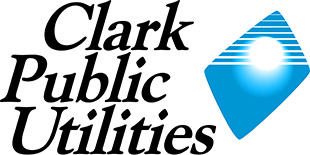The Public Utility Regulatory Policies Act (PURPA) is a federal statute developed following the energy crisis of 1970’s and was enacted in 1978. PURPA is meant to encourage cogeneration and renewable resources and promote competi¬tion for electric generation. It also sought to encourage electrici¬ty conservation. Interested customers can learn more about the PURPA statute on the American Public Power Association website.
PURPA Section 111(d)
PURPA Section 111(d) includes 21 specific standards that all electric utilities must consider for adoption. Electric utilities have the option to either adopt the standard being considered, or decline to adopt the standard.
Standards that are not adopted must include a statement of reasons that explain why the standard was not adopted. PURPA requires that electric utilities hold a public hearing that includes the evidence used to inform the adoption decision for each standard. Additionally, electric utilities must provide public notice that the PURPA standards are being considered, and seek public feedback and input for each new standard. This webpage and public comment form serves as the public notice and provides an opportunity for interested customers to submit input and feedback to the Clark Public Utilities Commissioners.
The PURPA statute can be found here, and the Section 111 standards begin on page six of the PDF document.
The original PURPA statute initially established six utility standards that required consideration and several additional standards have been added through the passage of various different federal statutes.
- The Energy Policy Act of 1992 created Section 111 standards 7 through 10
- The Energy Policy Act of 2005 created Section 111 standards 11 through 15
- The Energy Independence and Security Act of 2007 created Section 111 standards 16 through 19
- The Infrastructure Investment and Jobs Act of 2021 created Section 111 standards 20 and 21
Clark Public Utilities PURPA History
Each time the PURPA Section 111 standards are expanded, the utility has an obligation to consider adopting them. The Clark Public Utilities Board of Commissioners has previously considered all Section 111 standards except for the two most recent ones created by the Infrastructure Investment and Jobs Act of 2021, standards 20 and 21.
PURPA Section 111 Standards 20 and 21
Standard 20 | DEMAND RESPONSE PRACTICES
“(A) IN GENERAL. —Each electric utility shall promote the use of demand-response and demand flexibility practices by commercial, residential, and industrial consumers to reduce electricity consumption during periods of unusually high demand. (B) RATE RECOVERY. — (i) IN GENERAL. —Each State regulatory authority shall consider establishing rate mechanisms allowing an electric utility with respect to which the State regulatory authority has ratemaking authority to timely recover the costs of promoting demand-response and demand flexibility practices in accordance with subparagraph (A). (ii) NONREGULATED ELECTRIC UTILITIES. —A nonregulated electric utility may establish rate mechanisms for the timely recovery of the costs of promoting demand-response and demand flexibility practices in accordance with subparagraph (A).”
Initial review of Standard 20:
The utility’s staff have reviewed PURPA standard 20 and found that adopting it is likely not needed because the Washington state legislature has addressed demand response programs and practices in existing state statutes. Electric utilities in Washington already have a statutory mandate to promote the use of demand response practices. The Washington state legislature has a historical record of addressing the topics that are included in PURPA standards before they are enacted at the federal level, and the utility staff believes this is the case with standard 20, demand response practices.
The Washington state legislature addressed demand response programs and practices when the Clean Energy Transformation Act (CETA) was passed into law in 2019. RCW 19.405.060. CETA mandates that WA electric utilities create Clean Energy Implementation Plans that include an evaluation of specific targets for demand response programs. The initial assessment was completed in 2021. Based on the utility’s 2021 demand response potential assessment, demand response programs will be more effective with the development of smart metering, which the utility is currently evaluating. The utility is also in the process of developing two new demand response programs that are scheduled to launch in 2024.
Standard 21 | ELECTRIC VEHICLE CHARGING PROGRAMS
“—Each State shall consider measures to promote greater electrification of the transportation sector, including the establishment of rates that— (A) promote affordable and equitable electric vehicle charging options for residential, commercial, and public electric vehicle charging infrastructure; (B) improve the customer experience associated with electric vehicle charging, including by reducing charging times for light-, medium-, and heavy-duty vehicles; (C) accelerate third-party investment in electric vehicle charging for light-, medium-, and heavy-duty vehicles; and (D) appropriately recover the marginal costs of delivering electricity to electric vehicles and electric vehicle charging infrastructure.”
Initial review of Standard 21:
The utility’s staff have reviewed PURPA standard 21 and found adopting it is likely not necessary because the Washington state legislature has previously enacted several laws and policies addressing electric vehicle charging programs. The Washington state legislature has a historical record of addressing the topics that are included in PURPA standards before they are enacted at the federal level, and the utility staff believes this is the case with standard 21, electric vehicle charging programs.
RCW 54.16.430 allows WA public utilities to voluntarily adopt Transportation Electrification Plans that establish a finding that outreach and investment in the electrification of transportation infrastructure does not increase net costs to ratepayers in excess of one-quarter of one percent. A public utility district may, upon making a determination in accordance with subsection (1) of this section, offer incentive programs in the electrification of transportation for its customers, including the promotion of electric vehicle adoption and advertising programs to promote the district’s services, incentives, or rebates.
Further, the Climate Commitment Act includes the Clean Fuel Program, RCW 70A.535, which aims to reduce transportation related emissions by 20% by 2034 and specifically authorizes electric utilities to claim program credits related to residential EV charging.

